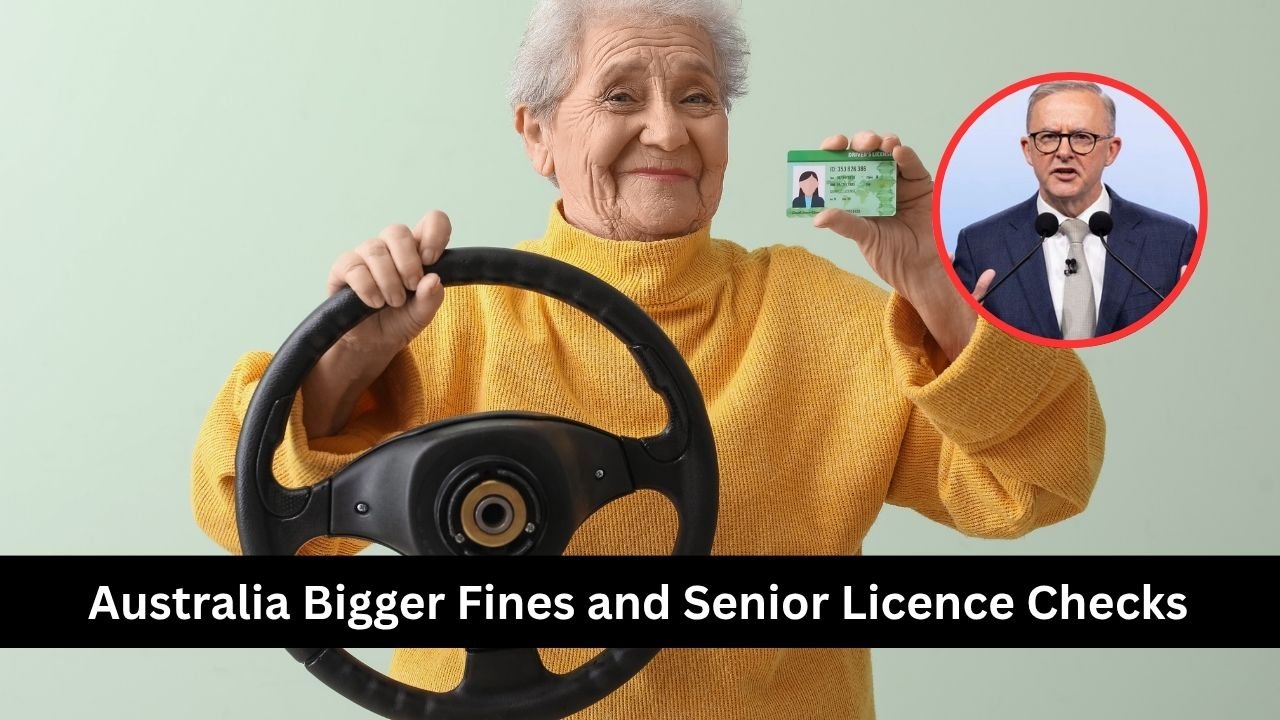Australia is preparing for one of its most significant road law overhauls in recent years, with new rules, higher fines, and enhanced senior licence checks coming into effect from 15 October 2025. The reforms aim to reduce road accidents, modernise enforcement, and better protect vulnerable road users.
Higher Penalties for Common Offences
The 2025 overhaul introduces tougher penalties designed to deter risky driving. Speeding fines in certain high-risk zones will rise by up to 30%, while illegal parking in restricted areas will attract unprecedented penalties of up to $2,200. Distracted driving, including mobile phone use behind the wheel, will also be more heavily targeted with higher fines and demerit points.
Drink and drug driving offences will face a sharp increase in penalties, with fines for driving under the influence set to climb from $1,500 to $2,500. Authorities are also warning that enforcement technology, such as AI-enabled speed and red-light cameras, will be upgraded to detect violations more accurately.
New Rules for Senior Drivers
From 15 October, tighter regulations will apply to senior drivers. Those over a set age threshold will be required to undergo regular medical assessments before licence renewal. The checks will focus on eyesight, cognitive ability, and mobility to ensure fitness to drive. Renewal intervals will shorten for older drivers identified as higher-risk, with some needing yearly medical clearance instead of multi-year licences.
This measure reflects concerns over age-related health deterioration and its impact on road safety. The aim is to allow seniors to maintain independence while ensuring they are physically and mentally capable of driving safely.
Stricter Road Safety Measures
The reforms include more than just fines and medical assessments. Updated signage will be rolled out to mark new speed limits in residential, school, and high-pedestrian areas. Enforcement patrols will increase in accident-prone locations, with targeted crackdowns on dangerous driving periods such as holiday weekends.
Drunk driving limits remain unchanged, but the government will push stronger advertising campaigns to warn drivers against combining alcohol with prescription or illegal drugs.
Technology-Driven Compliance
Enforcement technology will receive a significant upgrade in 2025. AI-powered traffic cameras will help detect speeding, seatbelt violations, and mobile phone use more efficiently. Licence plate recognition systems will flag unregistered vehicles instantly, and parking enforcement will become more automated through licence-linked ticketing systems.
This shift towards smart enforcement is expected to improve compliance rates while freeing up police resources for high-priority incidents.
Changes Coming 15 October 2025 – Key Penalty Updates
| Violation | Old Penalty | New Penalty | Impact |
|---|---|---|---|
| Speeding | $300 | $400 | Tougher deterrent in key zones |
| Illegal Parking | $100 | $2,200 | Major penalty for restricted areas |
| DUI (Alcohol/Drugs) | $1,500 | $2,500 | Stronger stance on impaired driving |
| Senior Driver Licence Renewal | None | Mandatory Medical Check | Greater safety screening for older drivers |
Driver Advice Ahead of the Law Change
Motorists are being advised to review current traffic laws and understand how the new measures apply in their state or territory. Parking habits should be adjusted to avoid restricted zones, especially near schools and emergency areas. Daily commuters should check updated speed zones and prepare for stricter enforcement on distracted driving.
Senior drivers should book medical assessments in advance to avoid delays when renewing their licence. Family members are also encouraged to discuss new rules with elderly drivers to ensure they remain safe and legal on the road.
Broader Road Safety Goal
The scale of the 2025 overhaul highlights the government’s focus on prevention. By increasing fines, introducing stricter senior driver assessments, and enhancing enforcement technology, authorities aim to drastically reduce crash rates and fatalities.
Transport safety experts say the real measure of success will be in how quickly driver behaviour improves once the changes take effect.
